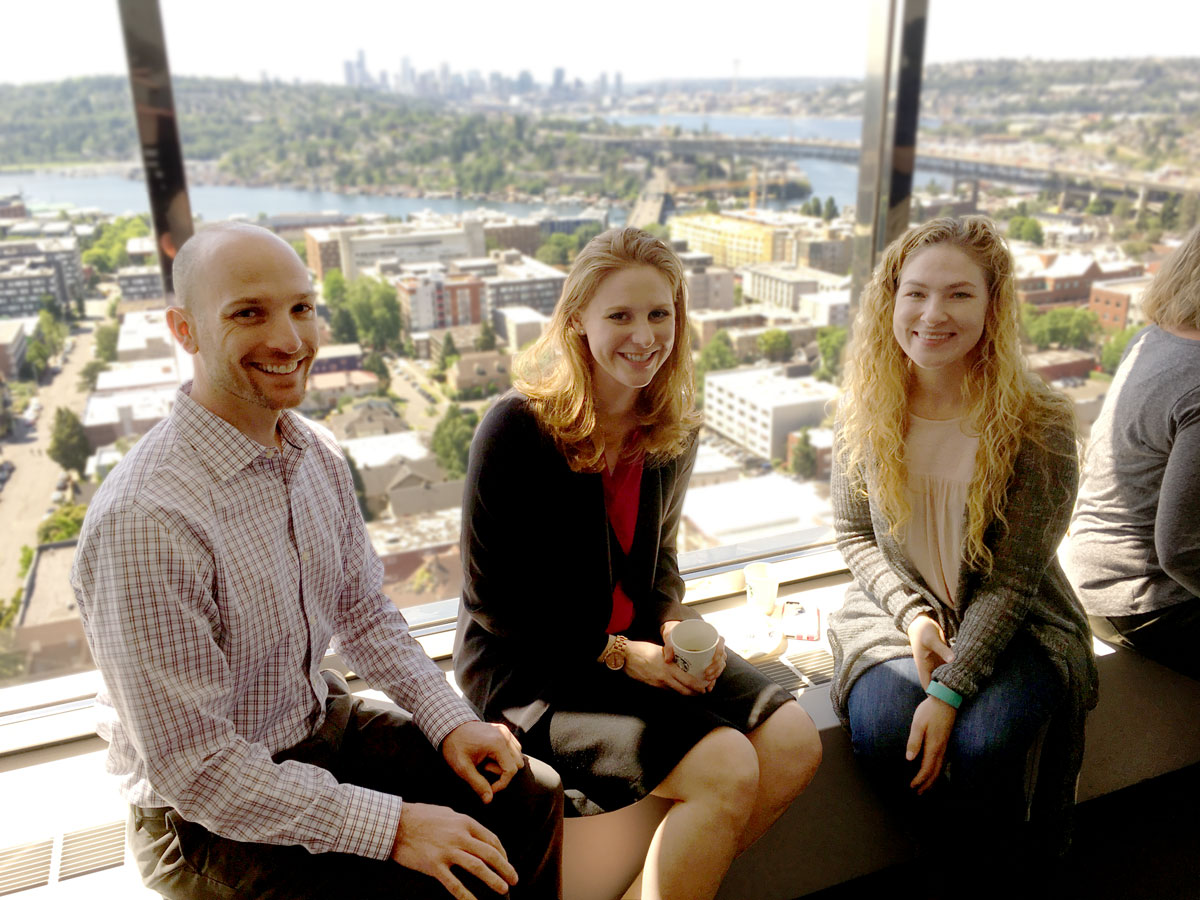
Team Zipline
Three members of the HSD Project Team at the May 2016 kick-off celebration of Zipline: Josh Bisetti, Megan Tedell-Hlady, Heather Rieck
Moving from “siloed” teams and paper-based systems to a team approach to compliance expertise
Any research involving human subjects must first be reviewed by the Human Subjects Division (HSD) to protect the safety, rights, and welfare of research participants and ensure the UW is in compliance with federal and state regulations.
To create a more positive experience for UW researchers while maintaining high compliance standards, in 2016 HSD carried out three major projects focusing on people, technology, and process.
First, the staff moved from 13 small, highly “siloed” teams to four larger teams with greater breadth and depth of expertise. All staff then participated in a nine-month intensive training program designed to produce regulatory experts able to exercise expanded authority and take initiative in helping researchers navigate the complex regulatory process. These changes were possible after replacing an inefficient paper-based application system with electronic documents and a web-based application management system called Zipline.
Making a Difference
Now that we no longer need to file papers and do manual data entry, HSD staff can shine as the experts they are.
These improvement efforts have had a direct and positive impact on researchers
This is reflected in comments on the 2017 TAP Customer Survey such as “I really appreciate the communication involved in the rollout of Zipline. Online tools and attention to quick fixes within the new forms has been fantastic.” Changes have also benefited HSD’s staff. According to Director Karen Moe, “Now that we no longer need to file papers and do manual data entry, HSD staff can shine as the experts they are. They can spend more time doing what they love: facilitating the continuous stream of cutting edge, fascinating activities that make up the UW’s research mission by helping researchers successfully navigate their ethical and regulatory obligations. The TAP Survey results are a gratifying sign that our projects have made a difference!”